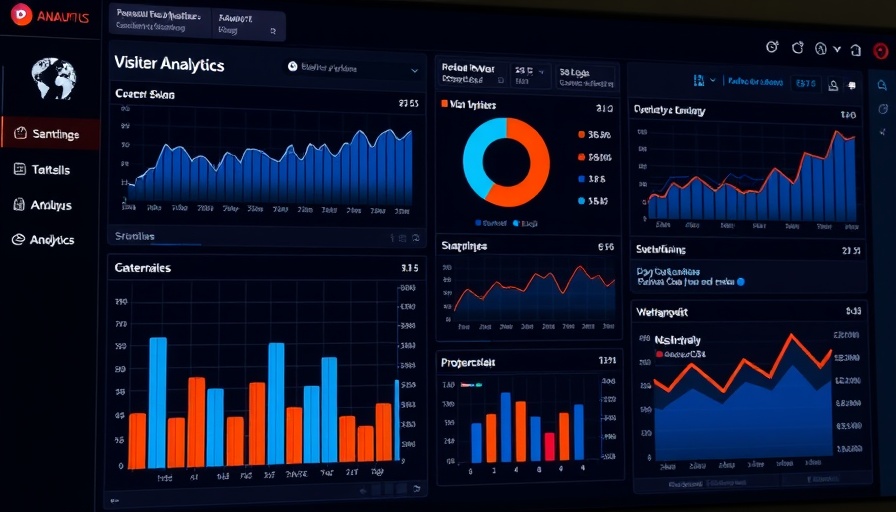
Google Analytics Real-Time Reporting: What’s Going Wrong?
In today's fast-paced digital environment, real-time reporting is crucial for businesses and marketers to make quick decisions. However, Google Analytics (GA) recently faced significant challenges, prompting frustration among users. Real-time tracking allows businesses to monitor their traffic as it happens, providing key insights into user behavior and marketing effectiveness. Issues with GA's real-time reporting are not just technical glitches; they can impact everything from ad spend efficiency to customer engagement.
The Importance of Data Accuracy in Marketing
Data integrity is a cornerstone in the realm of digital marketing. Marketers depend on reliable analytics to inform their strategies and optimize campaigns. If the analytics are broken, as many users have reported, it casts doubt on data-driven decisions. With the rise of platforms that emphasize real-time performance metrics, the vulnerabilities of GA's reporting system could affect the competitive edge of businesses relying on it. Ensuring data accuracy is not merely a technical challenge; it shapes the entire customer experience and marketing strategy.
Potential Causes Behind GA’s Reporting Issues
Several factors could lead to Google Analytics reporting issues. Configuration errors, unreliable tracking scripts, or even server-side problems can contribute to discrepancies in reported metrics. For business owners and marketers, acknowledging these potential pitfalls and understanding their implications can lead to less frustration in the future. Employing thorough configuration checks and regular audits of tracking setups can mitigate many of these problems before they escalate.
Future Predictions: Navigating the Evolving Digital Marketing Landscape
As digital marketing continues to evolve, so too must our tools. The current disruptions in Google Analytics highlight a critical need for alternative solutions that incorporate enhanced real-time capabilities and provide robust data integrity. Emerging platforms may offer more intuitive interfaces and stronger adaptability to changing consumer behavior. Businesses that are proactive in exploring these new options can position themselves ahead of the curve, ensuring their analytics remain reliable in a digital world that's anything but predictable.
Addressing Concerns: Diverse Perspectives from the Marketing Community
Fellow marketers are expressing varied perspectives on the impact of GA’s reporting issues. Some opine that reliance on Google’s ecosystem has led to complacency, while others feel that GA still serves as an indispensable tool despite its flaws. Engaging in discussions about alternative analytics tools or methodologies may provide other valuable insights into how businesses can optimize their tracking efforts without being overly reliant on one source.
Using This Information for Strategic Decisions
Understanding the limitations of Google Analytics can empower marketers and business owners to refine their strategies effectively. Making data-driven choices becomes increasingly critical when acknowledging potential inaccuracies in analytics. Knowing how to use insights, whether generated through GA or alternative platforms, can enhance decision-making, influence content marketing strategies, and drive better user engagement models.
Conclusion: Stay Ahead of the Game
In conclusion, while Google Analytics offers valuable insights, the recent disruptions serve as a reminder of the ever-changing landscape of digital marketing. To remain competitive, businesses should consider diversifying their analytics toolkit and exploring emerging technologies that ensure data reliability. Being adaptable and informed is key to leveraging digital marketing to its fullest potential – whether that means enhancing current practices or being open to new tools that promise greater reliability. Take the time to audit your approach to analytics today to ensure you're ready for tomorrow’s opportunities.
 Add Row
Add Row  Add
Add 




Write A Comment